- Home
- Keith Douglass
Hellfire c-20 Page 3
Hellfire c-20 Read online
Page 3
What, did they think he was stupid? A searchlight — yeah, right. What a bunch of horseshit. Some of the officers couldn’t even use a computer, and had never been to a laser light show, and they expected him to believe that story? Well, he wasn’t blind. He knew what he had seen, and it wasn’t a searchlight.
The remaining hours of his watch passed quickly as he kept alert for anything else in the sky. He fully expected to see the laser again. Any second now, and he would miss it if he blinked at the wrong time. He kept up an excellent watch, but no matter how hard he stared, the light did not reappear.
THREE
Tuesday, July 1
SS Montego Bay
0800 local (GMT-9)
The cruise ship Montego Bay had seen better days. Once the flagship of her fleet, she was now starting to show her age. On more modern ships, gas turbines replaced the steam boilers Montego Bay used for power. Her wooden decking had been stripped, sanded, and refinished so many times that it was now perceptibly lower than the interior of the ship. The cabins were smaller than those found on modern ships, and contained fewer amenities. While the cruise ship company had done what it could to keep her updated and attractive, the Montego Bay was trapped somewhere between a claim to old world charm and sleek modern convenience.
Despite her deficiencies, Montego Bay’s revenues were always positive. She was the favorite of a large class of passengers who enjoyed cruises but found the prices of the newer liners simply beyond their means. Montego Bay provided an acceptable compromise.
Montego Bay was currently working the pineapple run, the voyage between San Pedro Island in Southern California and the Hawaiian island chain. She’d made the trip many times, always uneventfully. This time, through no fault of her own, that would not be the case.
Her captain, Eric Gaspert, had been her master for the last ten years. He knew every sound she made, had walked her through her most recent renovations, and enjoyed being her master. The passengers were far more reasonable to deal with than the very rich. Gaspert liked his job and looked forward to several more years of it.
Gaspert was also a diligent captain, entirely professional and conscientious. This morning, he was on the bridge, reviewing the weather forecasts, notices to mariners, and other operational reports. The notices to mariners, or NOTAMS, particularly caught his attention. These were promulgated by the United States Coast Guard and contained warnings about military operations or other hazards at sea.
“If we stay on our present course, we’ll be right along the edge of this warning area,” his navigator said, tapping the chart in the center of an area outlined in red pencil. “And I think we’d like to stay well clear. Last night they were doing those random zigzags they like to practice — no talking to us, even though they saw us on the radar, no warning. We were never too close, but it’d be nice to know when they’re going to do something like that. Then all at once—wham. One of them, the Russians or the Americans, starts shooting lasers up in the air.”
Gaspert chuckled. “Bet that scared the crap out of the night crew.”
“I was down in the engine room and I heard the deck officer yell. Wonder what it was.”
“The NOTAM says they’re doing some Kernel Blitz missile testing exercises today,” Gaspert said. “It’s probably related to that, and if it’s missile testing, we won’t have to worry about staying clear. They’ll be all over us to clear the area before they take a shot.”
“Yes, of course,” the navigator said. “But this time, it may be a bit more complicated. The Russians are keeping a close eye on them. And they’ve been keeping station just to the east of the operating area.”
“They know something we don’t?” Gaspert asked.
The navigator nodded. “Probably. No less than we do, anyway.”
Wonder why the Russians are so interested in this exercise? Sure, they conduct surveillance on most military operations, but normally with one of their spy trawlers masquerading as a fishing boat. Hardly ever with a complete battle group including one of their own operational carriers. “They must be making the Navy nervous,” he said out loud. Gaspert had started his own career at sea in the United States Navy, and had a good idea of what was probably going on within the American battle group with the Russians so close. “INCOS is getting a workout.”
INCOS, or the International Concord to Avoid Incidents at Sea, was an agreement signed by both Russia and the United States. It covered conduct between the navies when meeting in open ocean and was designed to prevent misunderstandings that could escalate into conflicts. Prior to INCOS, there had been many instances where posturing and seemingly innocent but fairly hostile acts had almost led to tragedy. Recognizing the need for stricter rules between enemies during the Cold War, the Concord had been developed with the help of military and civilian law-of-the-sea experts. Since nobody wanted a war, particularly not now, both sides respected its provisions.
“Well, they’re big enough that we’ll see them on radar,” Gaspert said, checking the formations one last time. “But put a note in the night orders to notify me if we come within twenty miles of either group.” INCOS might cover Russian and U.S. military forces, but it said nothing about conduct toward cruise ships.
“Aye-aye, sir.” The navigator proceeded to brief the weather, which looked exceptionally pleasant. No hurricanes, not even a low-pressure system between the ship and her final destination, nor was one expected to move in. This was good news. The Montego Bay lacked the advanced stabilizers of more modern hulls, and although she rode the seas well, she could not provide the rock-steady deck that many passengers seemed to expect under all conditions. “We’d hate to interfere with shuffleboard, wouldn’t we?”
There was nothing more of particular interest in Gaspert’s morning brief. A few emergencies involving the passengers. One now in sick bay for a possible heart attack. A twisted ankle, a few cases of seasickness — and how was that possible, in this most gentle of seas? One case of what looked like the flu. The ordinary run of accidents and illnesses expected on any trip.
Captain Gaspert followed his usual sequence of dealing with paperwork, approving engineering and maintenance requests, making his rounds among the passengers, seeing and being seen and providing a sense of presence that reassured the most nervous of them. By the time he went below to tour the ship’s engineering plant, he had every reason to feel confident that the voyage would proceed uneventfully.
USS Jefferson
0800 local (GMT-9)
The morning brief on board the carrier was proceeding according to plan. Each department head ran through the status report of the areas under his or her responsibility, the remarks backed up by slides projected from a computer onto a large screen. Engineering, operations, intelligence, and so forth, each one bringing Coyote current on what had transpired since the previous evening brief.
The very last department to report was always the oceanographer, who also served as the meteorologist. Coyote had decreed the order of the briefers, saying the weather and the ocean environment were of critical importance to every department on the ship. Privately, Lab Rat suspected that the admiral had scheduled it as a show closer because the presentation was always boring enough to convince even the most gung-ho brown-noser present that it was time for the brief to wrap up.
“Another four days of this weather,” Lieutenant Commander Mason Wyatt said, entirely too chattily for Lab Rat’s taste. Whenever Wyatt briefed, Lab Rat got the distinct impression that he was auditioning for a spot on the Weather Channel. “Looks like terrific weather for the steel beach planned for the Fourth of July.” Wyatt beamed as though personally guaranteeing good weather for the gigantic cookout and celebration planned on the flight deck, the steel beach.
He proceeded to run through a number of graphs depicting the sound velocity profile of the ocean, the major weather fronts and high- and low-pressure areas across the Pacific, maintaining the same informal, breezy tone so at odds with the no-nonsense seriousness of ev
ery other department. Still, Lab Rat reflected, Mason was a hell of a meteorologist. If he said they were in for good weather, there would be good weather. Personally, Lab Rat thought that the Jefferson was due for some decent weather just to make up for the rest of the cruise.
Jefferson, along with her escorts, had departed San Diego six weeks ago. They were supposedly deployed to participate in a major war game staged for the Pacific theater, known as Kernel Blitz. At least, that was the story put out to all but a few with the need to know.
Lab Rat was one of those with a need to know.
It wasn’t as if it were a complete cover-up. There was an exercise named Kernel Blitz under way, and Jefferson was in the data link with units around the world, as was the Naval War College. Most of the ship’s crew was frantically planning and executing theoretical strikes and amphibious landings as well as other evolutions designed to ensure that every part of the battle group had a chance to practice the skills they’d need in actual war.
But a small group located in the bowels of Lab Rat’s department was engaged in something far more critical to the nation’s defense: the operational test of a new theater ballistic missile defense system.
Lab Rat had been chosen to head up the operation on board Jefferson, partly because he possessed the necessary clearances and it fell within his areas of responsibility as intelligence officer for the ship. Additionally, he was all too familiar with lasers and ballistic missile defense. During the last cruise, Senior Chief Armstrong, Lab Rat’s right-hand man, had showed him just how potent a land-based defense system could be. Only three weeks before, the senior chief had retired from the Navy and left Jefferson to begin his new civilian career with Omicron, the defense contractor with the primary contract for the TBMD laser.
To complicate matters, a Russian battle group centered around the Admiral Kurashov, what the Russians called an amphibious transport but what was really an aircraft carrier, was located thirty miles to the east. The laser blast arrowing up into the sky last night had caught them all off guard. The low-level intelligence reports said that they were there to monitor Kernel Blitz. But Lab Rat suspected that somewhere in the bowels of the organization would be a group similar to his, watching the TBMD tests and evaluating the impact of a success on the balance of power. Because, when you got right down to it, nothing was ever as secret as you thought it was.
There was, however, one primary problem with any land-based system: no matter how secret, no matter how covert, its location eventually became known. And once known, it was immediately targeted by America’s enemies.
The same reasoning that had led the United States to base a third of its nuclear triad on silent nuclear submarines had also spurred the development of sea-based ballistic missile defense systems. Omicron was again the lead contractor, as they had been for the land-based system, although this time through one of its wholly owned subsidiaries. Judging from the message traffic Lab Rat had seen that morning, Senior Chief Armstrong would soon be back aboard Jefferson, but this time as a very senior project manager whose equivalent military grade was several grades higher than Lab Rat’s rank.
“Finally,” Mason said, still holding his genial smile and staring at his audience while tapping the chart with his pointer — and just how did he do that, Lab Rat wondered, manage to nail exactly the correct spot without looking at it—“meteorologists all over the world are saying a fond farewell to a satellite known as Betty Lou. Last night, at approximately 0230, one final transmission was received from Betty Lou. After that, she no longer responded to control commands.”
“Okay, anything else?” Coyote asked briskly, tapping his number two pencil on the legal pad in front of him. Everyone on his staff knew that this was a sign that the admiral’s attention span had just been exceeded. Mason was the only one who never seemed to understand that, and to Coyote’s dismay, Mason continued.
“Odd circumstances, too,” he went on blithely. “In fact, Commander Busby, some of your folks are looking into it now. Just before Betty Lou passed away, she detected a — well, we don’t know exactly what it is. It’s being correlated with other intelligence sources now, I suppose. But it looked like a bolt of lightning.”
Shit. We’re supposed to be keeping a lid on this. Maybe he’ll take the hint if I blow it off. Coyote had talked to the midwatch TFCC crew and made sure that they all knew the laser incident was strictly hush-hush. If the lookouts kept their mouths shut, they might just pull off the secrecy bit for a while longer.
“Lightning?” Coyote queried. “In space? Right.”
“A sharp, short blast of light. Probably an internal short circuit of some sort that created an artifact, Admiral.” Mason was positively gloating over the fact that Coyote had shown enough interest to comment. Most of the time, his questions came from the destroyer squadron, or DESRON, who maintained an intense and somewhat anal interest in the intricate temperature profiles within the ocean.
“Well,” Coyote said, clearly a dismissal. “Unless there are any questions.” His tone of voice made it clear that none were expected. “Commander Busby, I’ll see you in CDC in ten minutes.”
“Yes, Admiral,” Lab Rat replied.
They’re testing their systems.
Of course, it could be one of those odd coincidences that keeps popping up around the world, and making a hash of the best intelligence estimates that money could buy. Lady Luck always had her hand in the works. But losing a satellite to something that looked like lightning just when Jefferson was testing out her systems and Russians were watching — or maybe even testing their own — well, that was just a little bit too much, wasn’t it?
Well, significant or not, it would have to wait. Lab Rat had eight minutes before he was supposed to meet the admiral in CDC to go over the final details for the test of their own system tonight. Sure, it was bad news that the Russians were testing their own version, not only from a correlation-of-forces point of view but simply as a matter of muddying up the playing field.
“Sir?” a voice just behind him asked. “Is there anything I can do?” Lab Rat turned to shake his head at Lieutenant Bill Strain, the new assistant intelligence officer who had checked in just before they’d deployed. Strain was a tall, lanky fellow, built like the college basketball player he was. Word had it that Strain had had a full scholarship at Notre Dame, a fact that was readily confirmed by the alumni on board. A few squadrons had already made a bid for him to join their intramural teams, but so far Strain had been pleading the need to concentrate on his duties in CVIC. Maybe later, after the deployment. Lab Rat suspected that his new lieutenant preferred more intellectual leisure activities and would probably continue to find excuses not to join until the interest died down. Nothing wrong with that, although Lab Rat found himself faintly envious of Strain for having a choice. At five-feet, six-inches tall, Lab Rat had long since resigned himself to signing up for bantam-weight sports.
“Not yet,” Lab Rat answered. “Not unless you know some way we can reach out and touch that system of theirs from here. And without getting caught.”
“Nothing comes to mind, but I’ll give it some thought.” Strain passed him a few sheets out of an intelligence update, information on the probable status of Russian laser defense systems. Lab Rat hadn’t known he wanted them until Strain handed them to him.
Sharp, real sharp. New, just like Bailey Kates, but already a front runner. We’re growing the next generation right here, our own replacements. And the Navy’s giving us some damned fine material to work with.
“Thanks.” Lab Rat glanced through them, refreshing his memory. It’d been a while since he’d looked at Russian capabilities, and it wouldn’t hurt to sound smart if Coyote had any technical questions. The admiral had a knack for surprising his officers with the depth of his knowledge on arcane subjects.
Maybe they’re done with their test. Maybe taking out the satellite was enough for them. Not that there won’t be hell to pay for that — in fact, I’m surprised we’re not
already seeing warning orders on it. In some contexts, that would be a clear enough act of war to start a nasty little exchange of weapons.
But it was an older satellite, wasn’t it? One that wasn’t all that useful anyway. And maybe, with the U.S. concentrating their resources and efforts on fighting worldwide terrorism, the Russians’ cooperation was worth more than a little outdated chunk of metal in the sky.
And we’re just going to let them get away with it? Lab Rat shook his head in disgust. Not so long ago, destroying an American satellite would have been grounds for a declaration of war.
“I wonder what made them pick out Betty Lou,” Strain mused. “Old satellite, of course — were they walking some sort of line between pissing us off and proving that they could do it? A few years ago, they never would have dared. Seems like nothing’s sacred anymore.”
The changes that had been wrought in American society by the hideous events of September 11, 2001, were deep and profound. The legal system was already infringing on constitutional rights that just a few months before the attack were virtually untouchable. With U.S. military forces treading heavily around the restrictions on posse comitatus, the restriction on using the military inside the U.S. for law enforcement, a lot of things were giving way to the need to hunt down terrorists. Maybe that included not being quite so worried about one satellite and not being willing to risk war over it.
If the tests tonight proved out, the U.S. would be a long way toward perfecting the continental missile defense system. And if it worked, it would free up assets normally occupied with mutual assured destruction, or MAD, to concentrate on the war on terrorism.

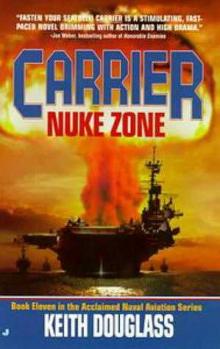 Nuke Zone c-11
Nuke Zone c-11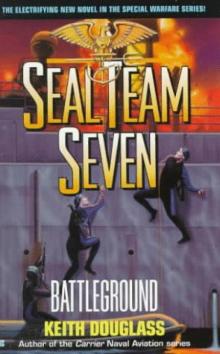 Seal Team Seven 6 - Battleground
Seal Team Seven 6 - Battleground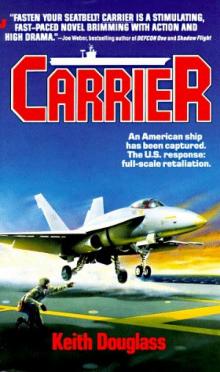 Carrier c-1
Carrier c-1 Island Warriors c-18
Island Warriors c-18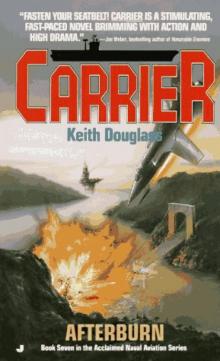 Afterburn c-7
Afterburn c-7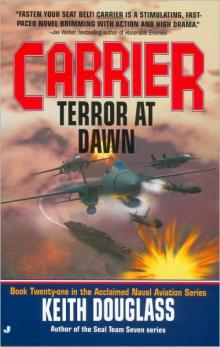 Terror At Dawn c-21
Terror At Dawn c-21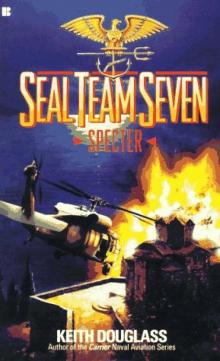 Specter sts-2
Specter sts-2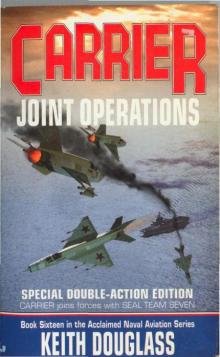 Joint Operations c-16
Joint Operations c-16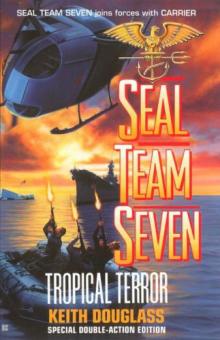 Tropical Terror sts-12
Tropical Terror sts-12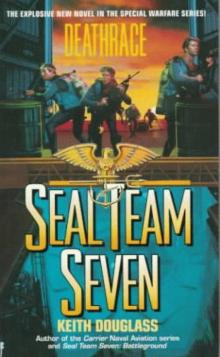 Seal Team Seven 7 - Deathrace
Seal Team Seven 7 - Deathrace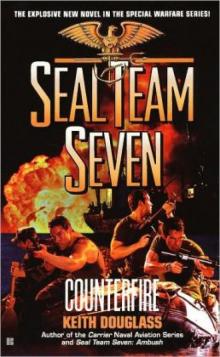 Counterfire sts-16
Counterfire sts-16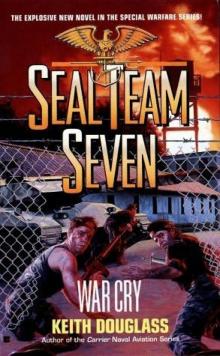 War Cry sts-9
War Cry sts-9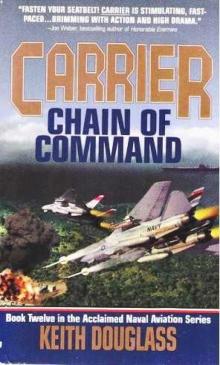 Chain of Command c-12
Chain of Command c-12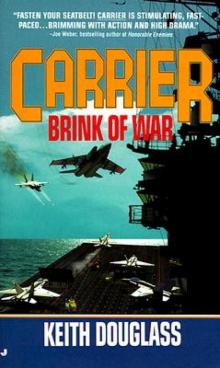 Brink of War c-13
Brink of War c-13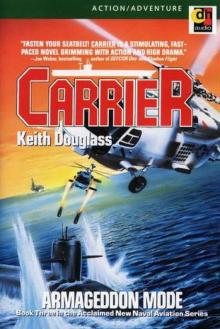 Armageddon Mode c-3
Armageddon Mode c-3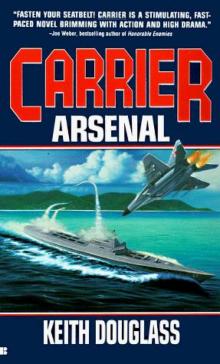 Arsenal c-10
Arsenal c-10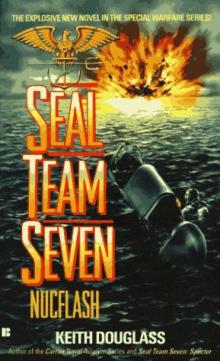 Nucflash sts-3
Nucflash sts-3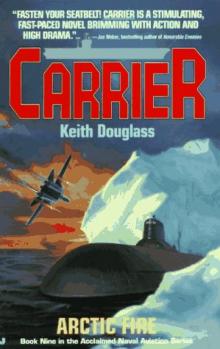 Arctic Fire c-9
Arctic Fire c-9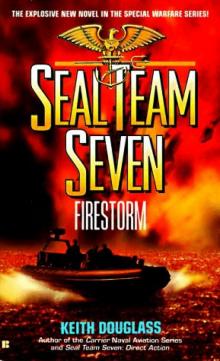 Firestorm sts-5
Firestorm sts-5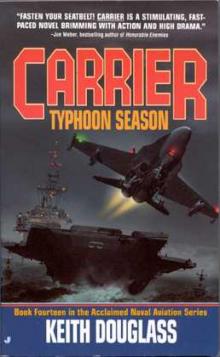 Typhoon Season c-14
Typhoon Season c-14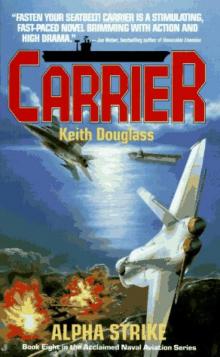 Alpha Strike c-8
Alpha Strike c-8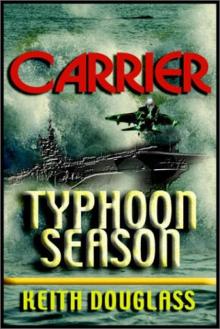 Carrier 14 - TYPHOON SEASON
Carrier 14 - TYPHOON SEASON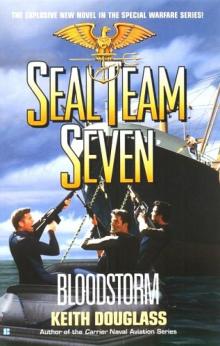 Bloodstorm sts-13
Bloodstorm sts-13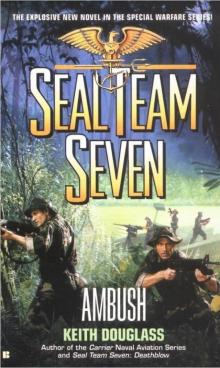 Ambush sts-15
Ambush sts-15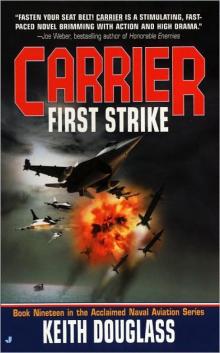 First Strike c-19
First Strike c-19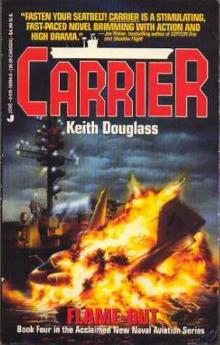 Flame Out c-4
Flame Out c-4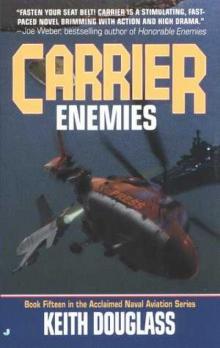 Enemies c-15
Enemies c-15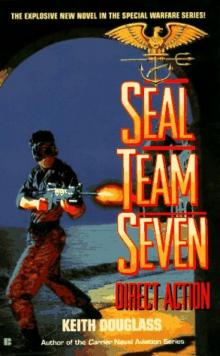 Seal Team Seven 04 - Direct Action
Seal Team Seven 04 - Direct Action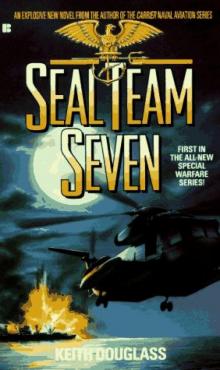 Seal Team Seven 01 - Seal Team Seven
Seal Team Seven 01 - Seal Team Seven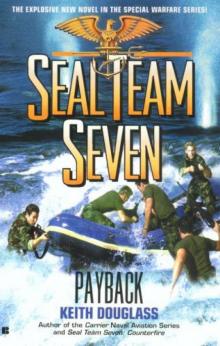 Payback sts-17
Payback sts-17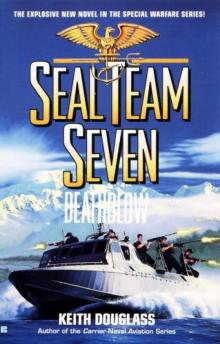 Death Blow sts-14
Death Blow sts-14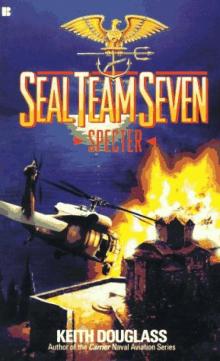 Seal Team Seven 02 - Spector
Seal Team Seven 02 - Spector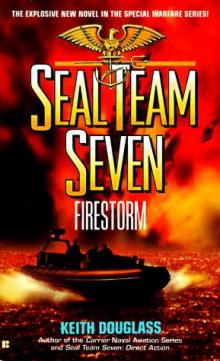 Seal Team Seven 5 - Firestorm
Seal Team Seven 5 - Firestorm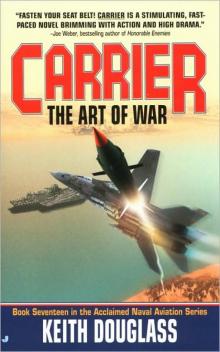 The Art of War c-17
The Art of War c-17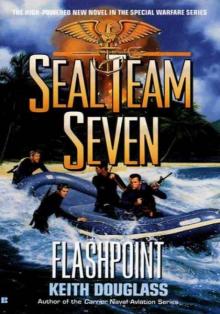 Flashpoint sts-11
Flashpoint sts-11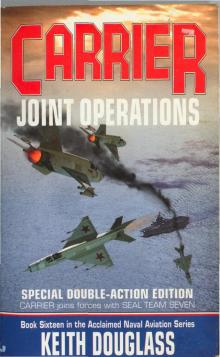 Carrier - Joint Operation Book 16
Carrier - Joint Operation Book 16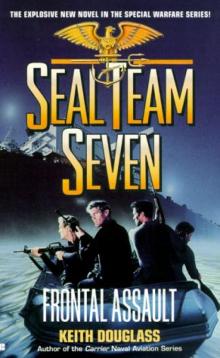 Frontal Assault sts-10
Frontal Assault sts-10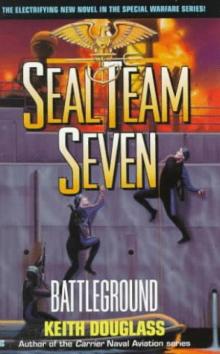 Battleground sts-6
Battleground sts-6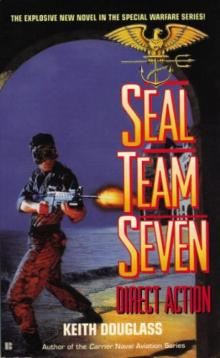 Direct Action sts-4
Direct Action sts-4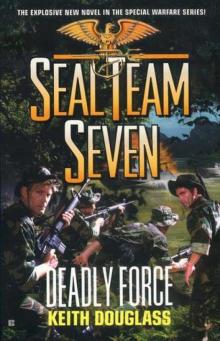 Deadly Force sts-18
Deadly Force sts-18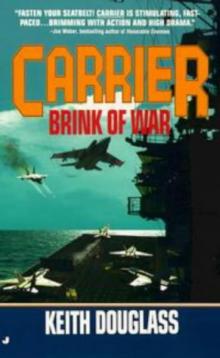 Carrier 13 - Brink of War
Carrier 13 - Brink of War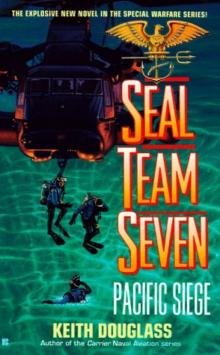 Pacific Siege sts-8
Pacific Siege sts-8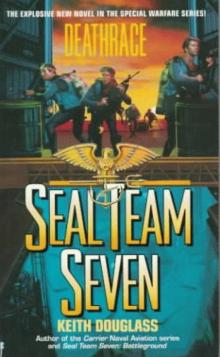 Deathrace sts-7
Deathrace sts-7